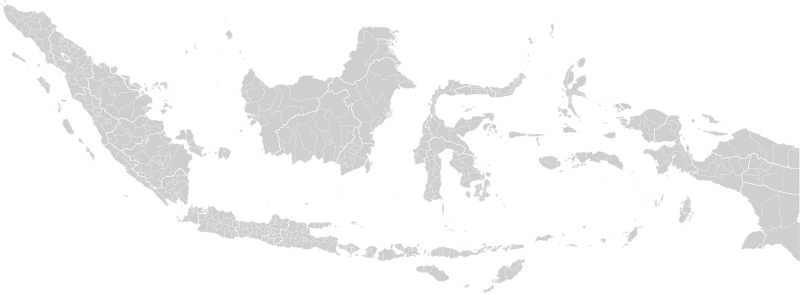
Achmad Nur Hidayat
Achmad Nur Hidayat is a public policy expert affiliated with UPN Veteran Jakarta, focusing on the implications of political coalitions on public service delivery and governance in Indonesia. He is often cited in discussions regarding the balance between political interests and the welfare of the citizenry.
Global Media Ratings
Countries Mentioned
| Country | Mentions | Sentiment | Dominance | + Persistence | x Population | = Reach | x GDP (millions) | = Power |
|---|---|---|---|---|---|---|---|---|
| Indonesia | 3 | 4.67 | 0.40% | +0% | 273,523,615 | 1,086,849 | $1,119,000 | 4,446$ |
| Totals | 3 | 273,523,615 | 1,086,849 | $1,119,000 | 4,446$ |
Interactive World Map
Each country's color is based on "Mentions" from the table above.
Recent Mentions
 Indonesia:
Achmad Nur Hidayat is an economist and public policy expert who comments on the market's lack of confidence.
5
Indonesia:
Achmad Nur Hidayat is an economist and public policy expert who comments on the market's lack of confidence.
5
 Indonesia:
Achmad Nur Hidayat is an economist and public policy expert who comments on the market's lack of confidence.
5
Indonesia:
Achmad Nur Hidayat is an economist and public policy expert who comments on the market's lack of confidence.
5
 Indonesia:
Achmad Nur Hidayat states that the current condition of the middle class is not good, with declining purchasing power.
4
Indonesia:
Achmad Nur Hidayat states that the current condition of the middle class is not good, with declining purchasing power.
4
 Indonesia:
Achmad Nur Hidayat argues that the government can act quickly without declaring a national disaster status.
7
Indonesia:
Achmad Nur Hidayat argues that the government can act quickly without declaring a national disaster status.
7
 Indonesia:
Achmad Nur Hidayat discusses the financial risks associated with the Whoosh project and suggests restructuring options.
6
Indonesia:
Achmad Nur Hidayat discusses the financial risks associated with the Whoosh project and suggests restructuring options.
6
 Indonesia:
Achmad Nur Hidayat discusses the financial consolidation of the Whoosh project and the risks associated with its funding structure.
6
Indonesia:
Achmad Nur Hidayat discusses the financial consolidation of the Whoosh project and the risks associated with its funding structure.
6
 Indonesia:
Achmad Nur Hidayat warned that loan interest could become a debt burden in itself, leading to fiscal risks.
6
Indonesia:
Achmad Nur Hidayat warned that loan interest could become a debt burden in itself, leading to fiscal risks.
6
 Indonesia:
Achmad Nur Hidayat is an economist from UPN Veteran Jakarta who highlighted concerns about the DPR's oversight potentially undermining BI's independence.
5
Indonesia:
Achmad Nur Hidayat is an economist from UPN Veteran Jakarta who highlighted concerns about the DPR's oversight potentially undermining BI's independence.
5
 Indonesia:
Achmad Nur Hidayat, an economist from UPN Veteran Jakarta, explained that recent riots stemmed from various socio-economic issues.
5
Indonesia:
Achmad Nur Hidayat, an economist from UPN Veteran Jakarta, explained that recent riots stemmed from various socio-economic issues.
5
 Indonesia:
Achmad Nur Hidayat criticized the increase in the police budget for 2026 as not aligned with the government's efficiency spirit.
6
Indonesia:
Achmad Nur Hidayat criticized the increase in the police budget for 2026 as not aligned with the government's efficiency spirit.
6